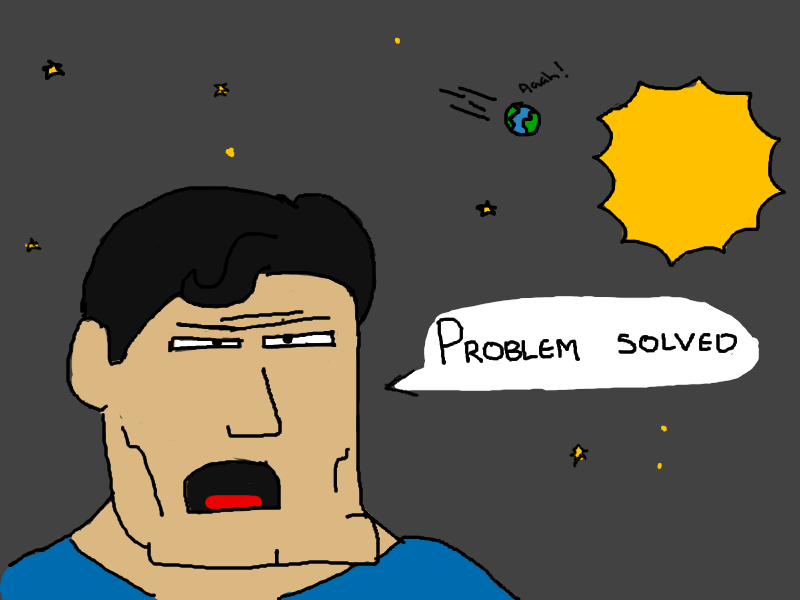Throwing problems into the sun
How do you make someone feel like a god in god games, without hurting the challenge?

A few months ago, Josh Bycer posted this article about god-games and the superman-complex. He states that god-game designers go through the same problems as superman-writers. How can you give a meaningful challenge, if the main-character can pick up the problem and throw it into the sun? If you remember Black & White, you might think of how your power actually gets less throughout the whole campaign. You ended up doing silly things to expand your reach, like throwing rocks for some worshippers. This was for a good reason. Of course the designers want you to feel like a powerful god and destroy things with a snap, but the goal of the game was a power-related one. That is: Destroy the enemy village. If you really are a god, that shouldn't be a real problem, and the game will run the risk of not being challenging and fun.

supermancomplex
If you look at the features of Reus, we try to dodge this problem. In Reus you control giants that influence nature. Your goal is to make humanity prosper with natural resources. You can hurl rocks and hurricanes at the villages that are misbehaving, and you have a vast control over nature. However, any excessive form of power will bring the world out of balance. Give the humans to much, and they will start to behave like spoiled brats. Give them to little (or give them to much hurricane-love), and they will be destroyed, stalling your progress. The idea of Reus is that you have to keep progress in balance, but extreme methods are totally ok if you can perform them correctly. Imagine playing Jenga or another balance game, but significantly more stable. Precise balancing might win the game, but we also want to make sure that the player can just punch the tower and survive if he knows what he's doing. It might even have its own merits.
Now this surely doesn't come without its problems. The most difficult problem we're encountering, is that in terms of gameplay, you have to balance a balance. It's relatively easy to say:"If you don't have 300 strength yet, you're gonna have a bad time against the boss". We have to make statements like:"If your giants are not strong enough yet, they will bring the village out of balance." The borders of balance get a lot more vague, On top of that, you also want to give the player more to do once he progresses through the game, implying that the player gains more possibilities and power. Now you've got to scale your balance up through the game, adding another balancing dimension. Putting the game back in terms of Jenga, imagine the pieces becoming heavier or longer every few minutes. Keeping the game's pace and feeling while the balance is shifting is not an easy task.
We're currently fighting our way through this seemingly uncharted terrain of game design, and we're sure to find more problems and hick-ups down the road. So if any of you have games that come in mind that we need to play, or if you have done a little research yourself, please post it in the comments! I will try to keep a record of my findings about balance-based design.
This blogpost comes straight from the Abbey. Read more about Reus here.
Read more about:
BlogsAbout the Author(s)
You May Also Like









